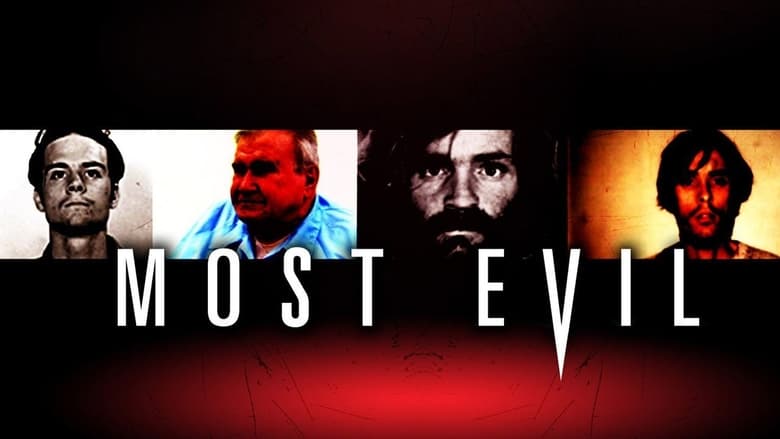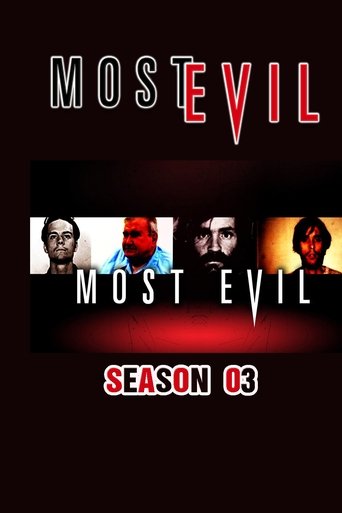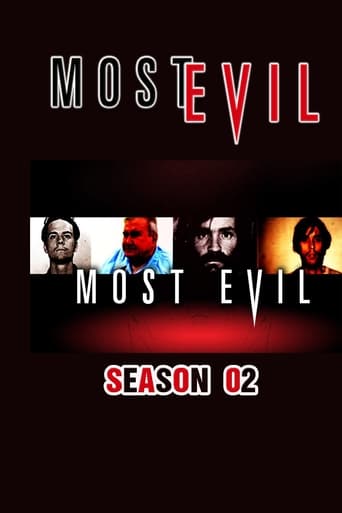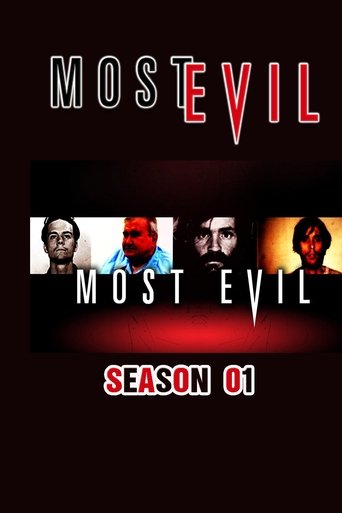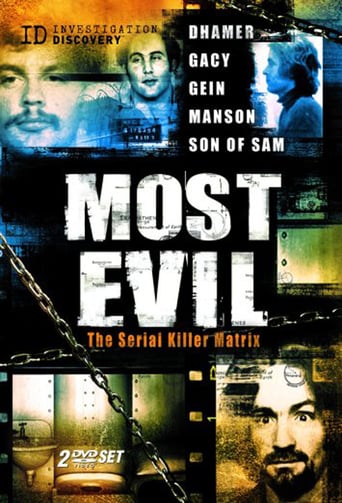
Trailer
Synopsis
Most Evil is an American forensics television program on Investigation Discovery presented by forensic psychiatrist Michael Stone of Columbia University. On the show, Stone rates murderers on a scale of evil that Stone himself has developed. The show features profiles on various murderers, serial killers, mass murderers and psychopaths.
Episode 20 : In Pursuit of Evil
April. 07,2008

How do you track a killer? When a homicide is discovered, police must consider every possible motive and suspect if they are to bring the perpetrator to justice. Detectives must delve into the criminal mind in hopes of identifying a killer and preventing future acts of violence. In this hour, Dr. Michael Stone, forensic psychiatrist at Columbia University examines the process involved in identifying and capturing vicious killers.
Episode 19 : Face to Face
March. 27,2008

Brutal killers. What motivates their heinous crimes? One man goes face to face with violent criminals to unlock the minds of the most evil. In this hour, forensic psychiatrist Dr. Michael Stone uses one-on-one interviews to gain insight into the motives, methods and minds of murderers. What caused these people to commit brutal acts of violence? Can their own words give us insight into the nature of their crimes?
Episode 18 : The Killer's Brain
March. 20,2008

What makes a murderer? Can malfunctions in the brain compel someone to commit acts of extreme cruelty? Are killers born or made? This hour follows Columbia University forensic psychiatrist Dr. Michael Stone on his journey to better understand why people kill. We hear from a variety of scientists about their work and examine possible scientific explanations for violent behavior.
Episode 17 : Gangs
March. 13,2008

Gangs. They lure members with promises of respect, money and power. From armed robbery to murder, they are responsible for some of the most brutal crimes. What drives gangsters to kill? Forensic psychiatrist Dr. Michael Stone examines the world's deadliest gangsters, delving into the cases of psychopathic mafia hitman Richard Kuklinski; Paul and Herman Petrillo, who operate a deadly Philadelphia murder ring; Ervil LeBaron, a polygamist Mormon leader who runs his church like the mafia; and Ismael Cisneros, whose affiliation with street gang MS-13 leads him to murder one of his best friends. Dr. Stone speaks face-to-face with Joseph Salcedo, a Los Angeles gangster whose participation in a retaliatory murder landed him behind bars. Using his scale of evil, Dr. Stone analyzes each killer's vicious acts to determine who is most evil.
Episode 16 : Redemption
March. 06,2008
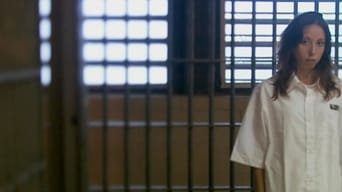
Redemption. The atonement of guilt. Is it possible for killers to reform and change their lives? Or are murderers always evil? For decades, Dr. Michael Stone has explored the nature of evil, examining the heinous crimes people commit. But now Dr. Stone will use his scale to explore a new question: is evil a constant state? Is redemption possible? Can a killer change? Dr. Stone interviews Billy Wayne Sinclair, a convicted murderer sentenced to death; Archie McCafferty, a self admitted killer given three life terms; Daniel Nieto, a life time gangster and Helen Prejan, a spiritual counselor who has witnessed multiple executions. He will explore their crimes and their lives.
Episode 15 : Women
February. 28,2008

Women who kill. They often target those closest to them; partners, family members, friends. Columbia forensic psychiatrist Dr. Michael Stone uses his scale of evil to understand the minds and motives of women who commit murder. Do women kill less than men, or does the stereotype of being the gentler sex enable them to get away with more heinous crimes? Dorothea Puente cared for elderly alcoholics in her home and killed them with poison one by one; Judy Neelley kidnapped and tortured young women; Betty Broderick, the perfect housewife and mother, gunned down her ex-husband when he left her for a younger woman. Dr. Stone's examination of murderous women highlights who is most evil.
Episode 14 : Vampires/Cannibals
February. 21,2008

Cannibals - vampires. Murderers who feed on humans. Driven by desires and delusions, these criminals not only kill they also consume flesh and drink blood. What causes these people to commit the ultimate taboo? Dr. Stone explores the cases of Armin Meiwes, who prowls the internet looking for a dinner guest to eat; Richard Chase who hears voices telling him to consume blood and organs or he will die and Rod Ferrell, a man who believes he is a vampire. Dr. Stone hopes to discover what motivates these crimes and who is most evil.
Episode 13 : Schemers
February. 14,2008

Scheming killers. Liars and con artists who deceive their families, their friends and the public. They use their intelligence to get away with murder. What drives these manipulating minds and who is most evil? Dr. Michael Stone is evaluating the cases of individuals who have planned and schemed to commit heinous crimes. Diane Downs blames a hitchhiker for shooting her children, but a surviving daughter says her mother pulled the trigger. Michael Swango was a brilliant doctor with a dark fascination. He is suspected of killing up to 60 patients. John Robinson fooled his family and community into thinking he was an upstanding citizen and entrepreneur. In reality, he was profiting from the deaths of vulnerable women. Dr. Stone then travels to Georgia to interview Martha Ann Johnson, who was convicted of killing her daughter in an attempt to get her husband back. How do schemers fool the people around them and what makes them different from other killers?
Episode 12 : Super Delusional
February. 07,2008

Killers, plagued by madness and driven by delusions and false beliefs. Their minds make irrational connections that result in horrifying acts of evil. In this hour, Dr. Michael Stone explores the twisted minds of killers that create false realities that will lead to violence. He examines the cases of Michael Owen Perry, a man obsessed with Olivia Newton John and overwhelmed by mental illness leading him to murder five family members; Joseph Kallinger, who believed he was on a mission from God that will ultimately drive him to rape, torture and murder; and Michael McDermott, who went on a workplace shooting spree after claiming his co-workers were Nazis. Dr. Stone explores the nature of delusions and how they impact a killer's ranking on his scale of evil.
Episode 11 : Manson
January. 31,2008

Charles Manson's name is synonymous with evil itself. Almost forty years after the Tate-LaBianca murders, history's most infamous criminal still inspires fascination and fear. But Manson himself never killed anyone. Instead, he convinced young, middle-class men and women to commit unthinkable acts of violence. Forensic psychiatrist Dr. Michael Stone speaks with two of Manson's followers to gain insight into his power: Catherine Share, known in the family as "gypsy," and Barbara Hoyt, a follower who nearly became Manson's next victim. Vincent Bugliosi, the man who put Manson and his most devoted followers behind bars, retraces his investigation into Manson and his motives. With his scale of evil, Dr. Stone investigates what gave Manson his incredible powers of manipulation . . . and why his name still generates such fear.
Episode 10 : Cult Leaders
October. 14,2007

Even with a mix of narcissism, paranoia, and undeniable charisma, cult leaders normally don't become violent. But when they do, the consequences can be staggering. With an army of loyal followers at their command, they have the power to act out their most deluded fantasies on a scale that rivals the worst serial killers. Analyzing three of 20th century's most deadly cult leaders, Dr. Stone investigates. Vincent Bugliosi, the man who prosecuted Charles Manson, explored one of the world's most shocking crimes, and into the mind of a notorious murderer.
Episode 9 : Revenge
October. 07,2007

Revenge is one of the more common motives for murder. Much less comprehensible and much more dangerous are killers who are not content with eliminating the object of their hatred. Seeking out anyone who reminds them of the enemy, they kill again and again. "Mad Dog" McCafferty killed three people to avenge his son's death. Anatoly Onoprienko, abandoned in an orphanage by his father, sought out revenge on any happy family he encountered. What accounts for violent vengeance? Dr. Stone probes the science of revenge to profile these killers, looking for clues that might shed light on their motives.
Episode 8 : Masterminds
September. 30,2007

The most intelligent serial murderers can be the most dangerous. Edmund Kemper, Unabomber Ted Kaczynski, and Randy Kraft all showed genius-level IQs, and their extraordinary intellect allowed them to kill for years-sometimes decades-without getting caught. What lies at the intersection of evil and intelligence? Dr. Stone, armed with new scientific discoveries on early brain development, analyzes Kemper, Kaczynski, and Kraft to find out what made these killers' use their cunning for crime.
Episode 7 : Attention Seekers
September. 23,2007

Some killers seek credit for their crimes. They play cat-and-mouse games with police, leave calling cards at crime scenes, and even send letters to newspapers. In each case, the quest for infamy leaves a devastating trail of destruction. From New York City's infamous "Son of Sam" to the terrifying spree of the DC Snipers, what causes some people to choose murder as a means to notoriety? With groundbreaking science on the origins of malignant narcissism, Dr. Stone profiles three murderers whose need for glory and control led them to incredible evil.
Episode 6 : Spree Killers
September. 16,2007

Over the last few decades, spree killings and mass murders have been on the rise. So-called "rage killers" are different from serial murderers, their anger building until they turn it loose on society, killing as many people as they can in a very short period of time. What links these acts of evil? From Charles Whitman, the Texas clock tower sniper, to Charles Starkweather, the real "Natural Born Killer," science reveals new clues into the psychology behind these seemingly senseless crimes.
Episode 5 : Cult Followers
September. 09,2007

From the 1995 sarin nerve gas attack in Japan to the Manson murders, some of the most horrific cult killings were carried out not by the cult leaders who planned them, but by willing followers. How do these members become so entrenched in cult thinking that they become active participants in evil? Dr. Stone unearths the psychology of persuasion and indoctrination by interviewing surviving cult member Tim Carter, one of only three to survive the 1978 Jonestown massacre. And he'll meet face-to-face with Ron Luff, serving a life sentence for his part in the cult murders of the Avery family. Is there something psychologically unique to violent cult members, or can any one of us be drawn in?
Episode 4 : Unsolved Cases
September. 02,2007

Dr. Stone's scale of evil has decoded the complex psychology of the country's most notorious criminals. But can it be used to reveal new clues for unsolved crimes? Cold cases, including that of the infamous Black Dahlia, will be reopened as Dr. Stone profiles killers who may still be at large. He'll venture into prison to meet face-to-face with alleged Lipstick Murderer Bill Heirens.
Episode 3 : Delusional
August. 26,2007

Featuring cutting-edge science that may finally reveal the neurological cause of violent schizophrenia, three delusional minds are profiled. Though most schizophrenics never become violent, some of the world's most notorious crimes have involved people whose bizarre breaks from reality have pushed them to murder. Some, like Bob Mullin, who killed 13 people, even hear voices commanding them to kill.
Episode 2 : Stalker
August. 19,2007

What happens when delusion, obsession, and jealousy collide? Violent stalkers are among the most terrifying criminals, preying on victims with a chilling determination. What can explain this relentless drive, and what triggers violence in the mind of a stalker? Neuro-psychology is explored on the cases of four notorious stalkers, to provide insights into the science of deadly obsession. Robert Bardo, killer of television actress Rebecca Schaeffer, speaks from prison to give Dr. Stone his first-person account of the crime.
Episode 1 : Jealousy
August. 12,2007

What happens in the mind of jealous lovers turned into enraged killers? From impulsive crimes of passion to the terrifying revenge spree of Andrew Cunanan, killer of world-famous fashion designer Gianni Versace, Dr. Stone unravels how the psychology of love can become the psychology of murder. The FBI deputy director who led the Cunanan manhunt, leads viewers through his search for an unstoppable killer consumed by jealous rage.
Seasons
Related
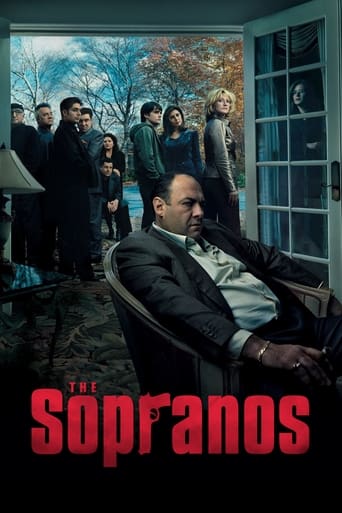
The Sopranos
The story of New Jersey-based Italian-American mobster Tony Soprano and the difficulties he faces as he tries to balance the conflicting requirements of his home life and the criminal organization he heads. Those difficulties are often highlighted through his ongoing professional relationship with psychiatrist Jennifer Melfi. The show features Tony's family members and Mafia associates in prominent roles and story arcs, most notably his wife Carmela and his cousin and protégé Christopher Moltisanti.
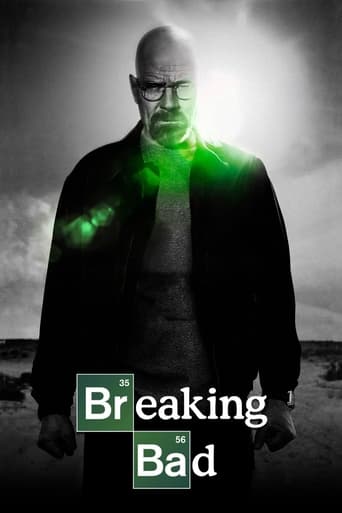
Breaking Bad
Walter White, a New Mexico chemistry teacher, is diagnosed with Stage III cancer and given a prognosis of only two years left to live. He becomes filled with a sense of fearlessness and an unrelenting desire to secure his family's financial future at any cost as he enters the dangerous world of drugs and crime.
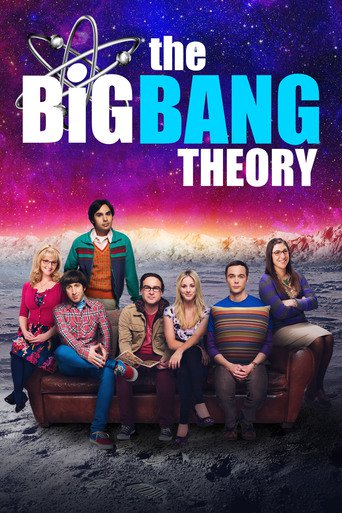
Prime Video
The Big Bang Theory
Physicists Leonard and Sheldon find their nerd-centric social circle with pals Howard and Raj expanding when aspiring actress Penny moves in next door.

The Walking Dead
Sheriff's deputy Rick Grimes awakens from a coma to find a post-apocalyptic world dominated by flesh-eating zombies. He sets out to find his family and encounters many other survivors along the way.

Black Mirror
Over the last ten years, technology has transformed almost every aspect of our lives before we've had time to stop and question it. In every home; on every desk; in every palm - a plasma screen; a monitor; a smartphone - a black mirror of our 21st Century existence.

The Good Place
Eleanor Shellstrop, an ordinary woman who, through an extraordinary string of events, enters the afterlife where she comes to realize that she hasn't been a very good person. With the help of her wise afterlife mentor, she's determined to shed her old way of living and discover the awesome (or at least the pretty good) person within.

Brooklyn Nine-Nine
A single-camera ensemble comedy following the lives of an eclectic group of detectives in a New York precinct, including one slacker who is forced to shape up when he gets a new boss.
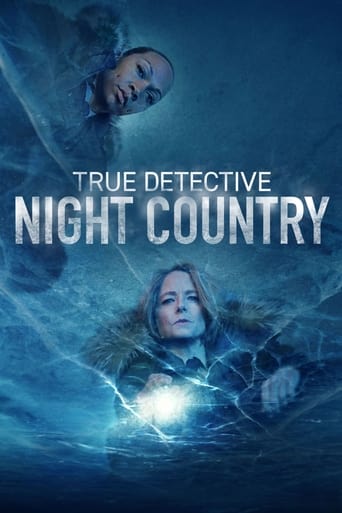
True Detective
An American anthology police detective series utilizing multiple timelines in which investigations seem to unearth personal and professional secrets of those involved, both within or outside the law.

Game of Thrones
Seven noble families fight for control of the mythical land of Westeros. Friction between the houses leads to full-scale war. All while a very ancient evil awakens in the farthest north. Amidst the war, a neglected military order of misfits, the Night's Watch, is all that stands between the realms of men and icy horrors beyond.

Sex Education
Inexperienced Otis channels his sex therapist mom when he teams up with rebellious Maeve to set up an underground sex therapy clinic at school.
Top Streaming TV Show
#1

Ikaw
November. 12,2021
5.9
#2
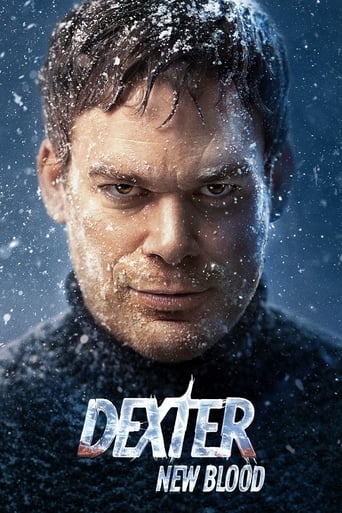
Dexter: New Blood
November. 07,2021
8.1
#3
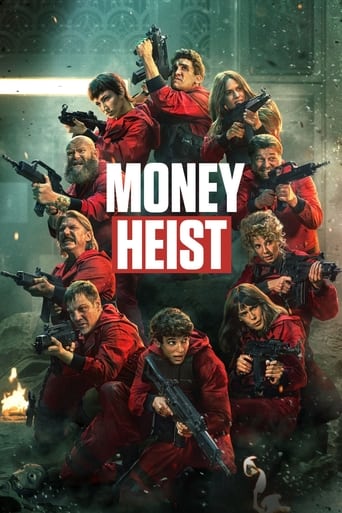
Money Heist
May. 02,2017
8.4
#4
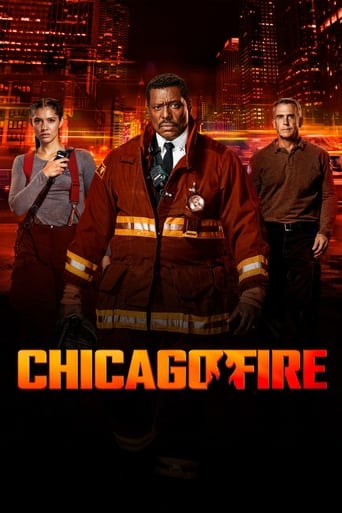
Chicago Fire
October. 10,2012
8
#5

Emily in Paris
October. 02,2020
6.9
#6

The Witcher
December. 20,2019
8
#7
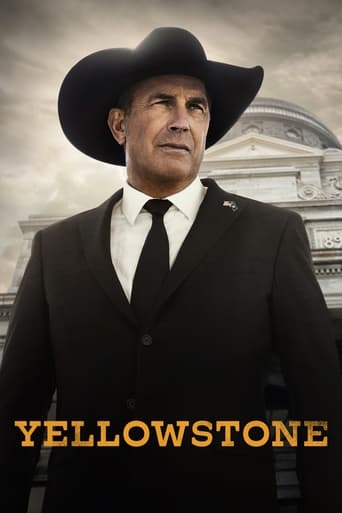
Yellowstone
June. 20,2018
8.7
#8
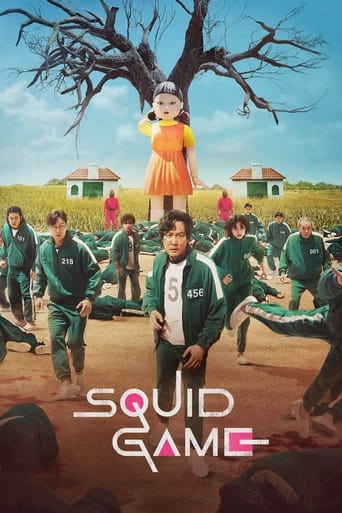
Squid Game
September. 17,2021
8
#9

The Bachelorette
September. 23,2015
5.3
#10

See
November. 01,2019
7.6
